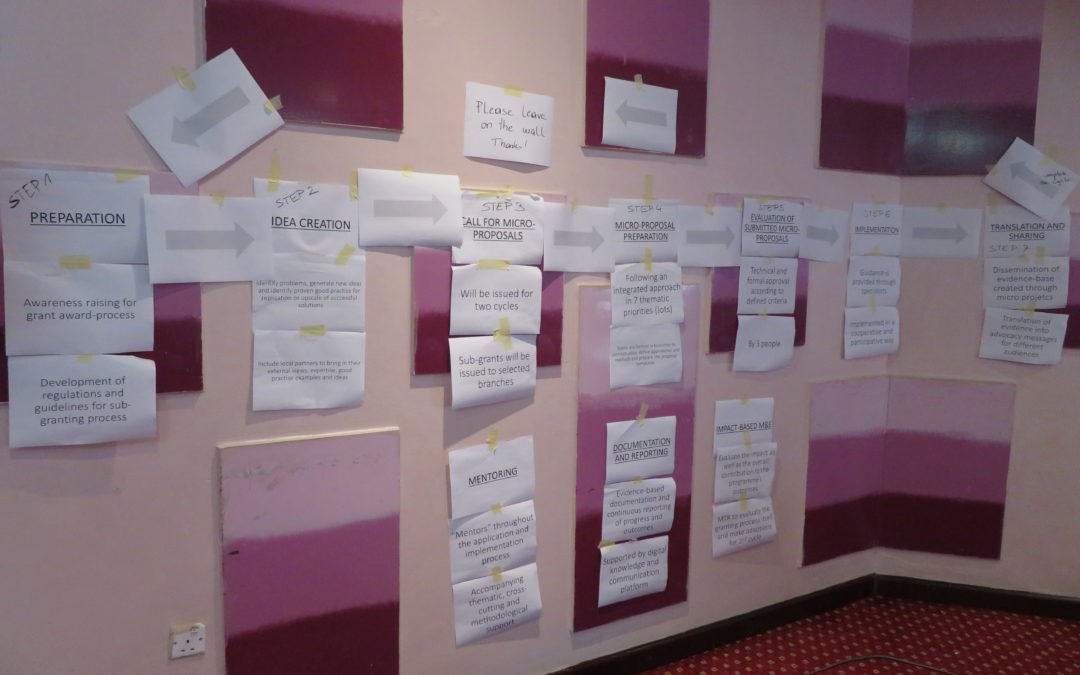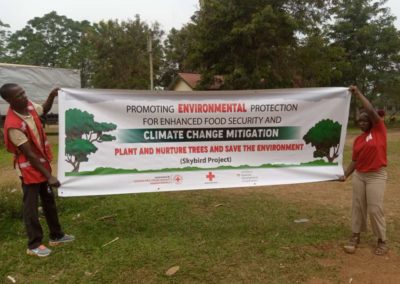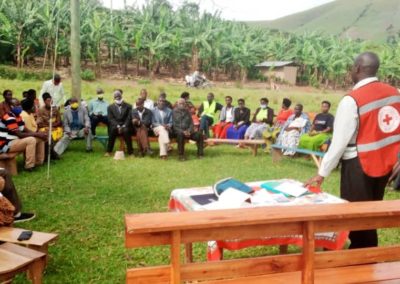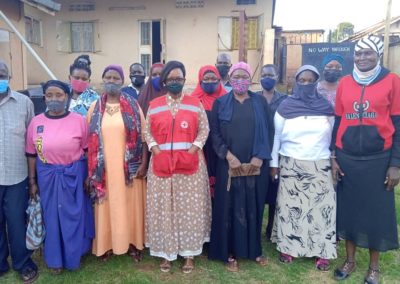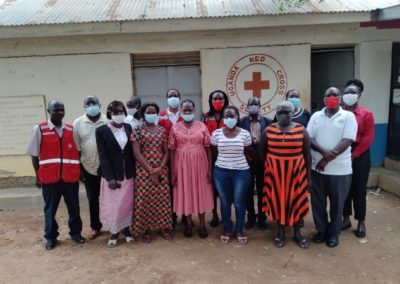My name is Jennifer Akumu. I am the Program Officer supporting Austrian Red Cross funded Skybird projects in Uganda Red Cross Society (URCS). I have been overseeing the implementation of the Skybird projects in the 6 Branches of Ntungamo, Kampala South, Iganga, Lira, Moroto and the regional WASH project in Gulu since October 2019.
I first learned about the Skybird Programme during an inception meeting which was organized in Kampala. I liked the programme so much, because of its innovative and creative nature which I felt would give opportunities for a lot of learning and testing of what works best in an area. However, I oversaw a lot of complexity in the implementation of the project. Majorly in understanding how to effectively link the 7 thematic areas with WASH. The seven (7) thematic areas are; Gender inclusion and diversity, Food security-nutrition and livelihood, Urban WASH, Cash Transfer Programing, Climate Change and Green Energy, Digitalization and Community Engagement and Accountability. However, on the other hand, I wished to take the advantage of understanding the integration aimed at achieving more than the normal WASH programing, which would basically look at water, sanitation and hygiene. Much as I was by then supporting another WASH project in URCS, I considered any opportunity that would allow me to support the Skybird project.
Frequent engagement and coordination is key
By its complex nature, it was not easy for the decision makers (SMT) in URCS to understand the project at first. However, the frequent engagement and coordination with them during the project start up time and implementation, enabled them to understand and appreciate the project. Much as it was difficult to understand the project, I did not really do a lot of advocacy to bring them on board. They were positive and supported the project right up from the beginning, amidst its’ perceived complexity.
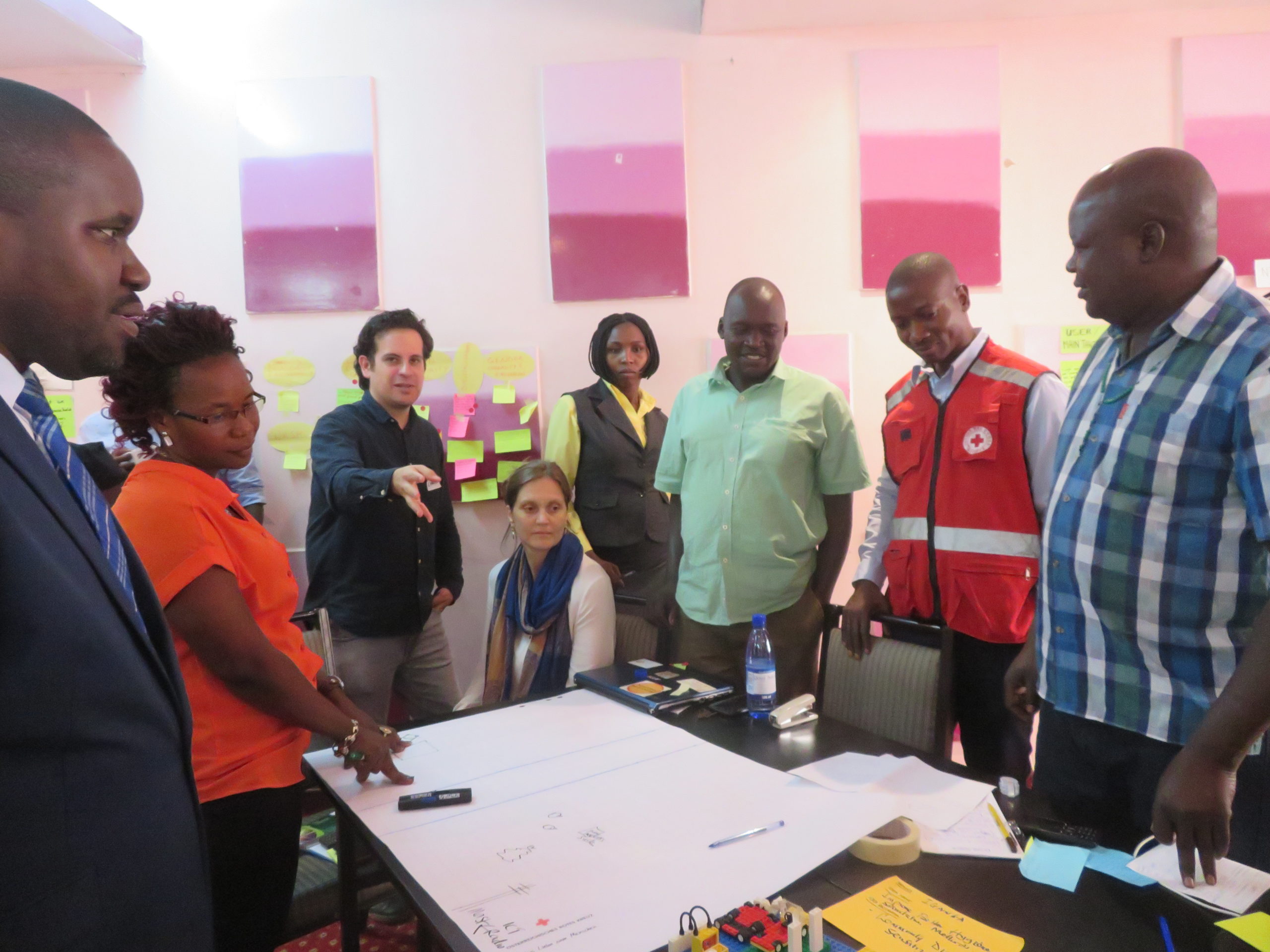
Kick-off workshop for the Skybird Programme
Reaping the benefits of integrated WASH programming
The Skybird project helps in creating more awareness about the importance of integrated WASH projects. Through the project, the staff within the National Society have learnt the benefits on having integrated WASH programming which among other focus include economic empowerment. The project was able to incorporate other elements like food security and nutrition which does not only aim at providing adequate food but also some income from the sale of the produce. There is growing awareness for related issues such as climate change and green energy, digitalization or food security, nutrition and livelihoods. Some of these thematic areas were never thought of as integral to WASH. However, through this project, this has been seen as possible and feasible. More emphases are being put to integrate projects as much as possible.
Gender, diversity and inclusion
URCS has been putting some effort to capture gender in their projects. However, this has not come clear at planning, implementation and reporting levels. With Gender, diversity and inclusion being one of the thematic focus, the Skybird project has fully brought out this component. URCS has a focal person for PGI, and currently the Human Resource department is working towards establishing a gender committee within the National Society. This committee will be trained and will support gender, diversity and inclusion related concerns including its integration in all URCS programming. Currently there is limited awareness on the importance of gender, diversity and inclusion aspect and there is need for more advocacy for better uptake by all. The committee members will complement the efforts of the project team to scale up the uptake.
By the end of the project in 2023, we hope the National Society will be supporting gender, diversity and inclusion in their programming and implementation. However, since it is not yet fully initiated now, it might be at a take-off stage, at the end of this project. This will still need close monitoring and follow up for it to gain concrete ground.
What I would add from what I have learnt:
The Skybird project is a very unique project. This is because:
- The implementing Branches had to start from scratch. Unlike the other projects that comes to the branches with clear work plan and budget, the Skybird Programme had a unique beginning, where implementing branches had to start from assessment, developing ideas, and proposals. This seemed so difficult to the Branch Managers at the beginning, and many of them had started doubting the feasibility of the project at that stage. But, as they were taken through all the stages till they were awarded the project, they started appreciating the process. Since they were able to understand their project more than any other person.
- The innovative nature of the project has enabled URCS to try and test what works best in a particular area. For instance, in Lira branch, the project is piloting ‘indaba’ technology for documentation. They will be able to share later with other branches and stakeholders the pros and cons of the approach. Thus, can as well be replicated elsewhere.
